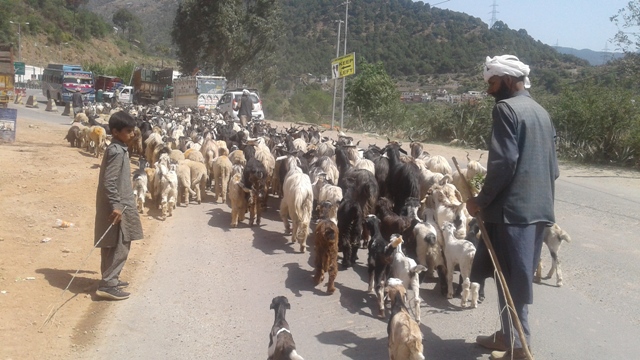Govt to introduce Islamic, Vedic and Buddhist studies in schools
Will
it promote malice or cooperation between religious communities?
Akshay
Azad
Early
Times Report
Jammu,
June 17: The state government has proposed to introduce Islamic, Vedic and
Buddhist studies at Government Higher Secondary Schools' level but experts
doubt whether this half-baked exercise will promote malice or cooperation
between already divided religious communities.
The
state government has proposed to create 468 posts of lecturers at Government
Higher Secondary Schools level. These posts comprise 356 posts of Islamic
Studies including 125 in Jammu and 231 in Kashmir. For Buddhist studies a total
of 30 seats are proposed to be created out of which 16 in Jammu and 14 in
Kashmir, whereas for Vedic Studies 82 posts for Jammu region alone.
A
meeting of Finance department was held on 7/6/2018 in which discussions were
held regarding the proposed creation of 468 posts of Lecturers at Higher
Secondary Schools level. The meeting was attended by Secretary Education
Department, Director General Budget Finance department, Director Codes,
Director Budget of Finance departments.
Out
of these 468 posts 234 will be filled through direct recruitment whereas 234
through promotional quota and total financial implication for the creation of
posts are earmarked as Rs. 18.09 Crores. Experts
have raised doubts over the outcome of introducing these subjects as per
religious demography of the state, rather than recommendations of experts'
opinion.
Professor
M.H Zaffar of the Department of Comparative Religion, Central University of
Jammu said, "It is most important for all to have an understanding of our
rich cultural and religious heritage but to impart education about rich
religious ethos among students, an expert module must be prepared before
introduction of courses in
which experts from national level institute will be included".
Professor
Zaffar further says that an expert committee must be constituted while as
teachers must be given training along with framing of syllabus for the subject
on recommendations of the experts.
"It
is halfhearted exercise to introduce subjects as per religious demography of
the state", he said, adding that the state government had not sought any
suggestion from their department over the matter.
Head
of the Department of Buddist Studies of Jammu University, Prof. RN Singh said
that before 2005, a proposal was mooted by government to introduce religious
subjects at School level.
"In
2010, when I was HOD of the department, an official of government had
officially communicated with our department, for framing of syllabus and a
compilation of book for Buddhist studies", he said, adding that but the
subject was not introduced in the schools or college level at that time.
He
welcomed the proposed move of government to introduce Buddhist subject at
school level. On the question of job opportunities for youth qualified in
religious studies, he said the important question is to have knowledge of our
civilization and culture.
A Ph.D scholar opined that every individual has some knowledge about his/her religion but have almost negligible knowledge of others. “In absence of any knowledge about others’ religion, it is easy to mislead him/her and create mistrust about others religion in an already stereotyped society”, he said, adding that the thrust of government must be to teach students about others’ religion and not only their own.
This move of the government will ultimately polarize the already divided religious communities and increase the wedge between them, he opined.
Dr.
Abdul Rashid Bhat, Head of the Department of Shah-I-Hamdan Institute of Islamic
Studies welcomed the proposed move of government and said that at college and
Schools level, the qualified students would find opportunities as well in
research areas. Over the question of any expert opinion taken by Education
department, he replied in negative.
Prof.
Hamidullah Marazi, Assistant Professor in the Department of Religious Studies,
Central University of Kashmir though welcomed the proposed move but said that
it would be better if students would study all the religions.
"The
basic question is to understand the religion. Even if people will have
fundamental knowledge of their own religion, it would ultimately promote
cooperation between communities as none of religious teaches hatred",
Prof. Marazi said.
On
the question of apprehension of promoting malice between communities, Prof.
Marazi said that if the students would know their own religion, at the post
graduation level, even if they would have any malice, it would be cleared.
Secretary
of School Education Farooq Shah didn’t pick up his phone for comments.




Comments
Post a Comment